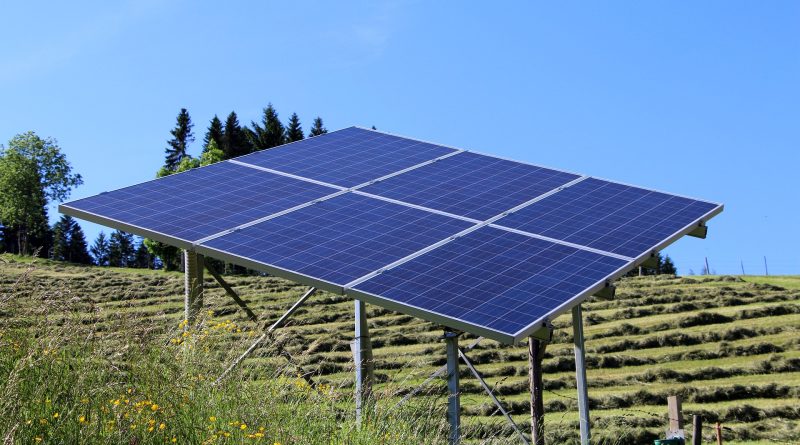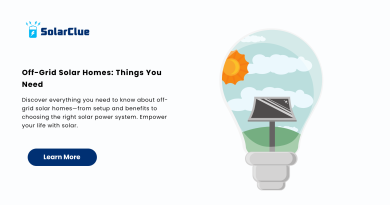Solar Systems Grid Down: Ensuring Solar Power in Outages
In recent years, the use of solar power has surged in popularity as an environmentally friendly and cost-effective alternative to traditional energy sources. As more homeowners and businesses invest in solar panel systems, a common question arises: do solar systems work when the grid is down? This blog aims to explore the functionality and limitations of solar systems during power outages, providing a comprehensive understanding of their reliability in such situations.
Table of Contents
How Do Solar Systems Work?
To understand whether solar systems can function during power outages, it is essential to grasp the basic mechanics behind these systems. Solar panels consist of photovoltaic (PV) cells that convert sunlight into direct current (DC) electricity. This DC power then passes through an inverter, which transforms it into alternating current (AC) electricity compatible with household appliances and the power grid. Most solar systems are connected to the electric grid, allowing excess energy to be fed back into the grid when the system generates more electricity than the household needs.
Grid-Tied Solar Systems and Net Metering
Grid-tied solar systems, which are the most common type, rely on the electric grid to function. When the sun is shining, these systems produce electricity and supply it directly to the home or business. Any excess power is sent back to the grid, resulting in a credit or reduction on the user’s electricity bill. However, this means that when the grid is down, these solar systems typically shut down as a precaution for utility workers’ safety.
Despite their shutdown during power outages, grid-tied solar systems can still provide significant financial benefits through a policy known as net metering. Net metering allows solar system owners to receive credits for the excess power they generate and feed back into the grid during sunny periods. These credits can then be utilized during times when the system is not generating enough energy, such as cloudy days or at night. Thus, even though solar systems may not operate during power outages, they can still contribute to overall energy savings throughout the year.
Battery Backup Systems
While grid-tied solar systems may cease operation during power outages, there is an alternative solution: battery backup systems. These systems store excess solar energy in battery banks for later use, providing a reliable source of power even when the grid is down. Battery backup systems serve as a backup power supply, allowing critical appliances and devices to continue running during emergencies.
The use of battery backup systems significantly increases the resilience of solar systems, enabling homeowners and businesses to maintain access to electricity regardless of the grid’s status. These systems can power essential equipment such as refrigeration units, medical devices, and communication devices during extended power outages. In areas prone to natural disasters or frequent blackouts, battery backup systems can provide peace of mind and potential cost savings.
Hybrid Solar Systems
In recent years, hybrid solar systems, also known as grid-interactive or grid-tied with battery storage, have emerged as a compromise between grid-tied systems and battery backup systems. Hybrid systems integrate battery banks into grid-tied setups, allowing the excess energy to be stored for later use instead of being sent back to the grid. This provides homeowners and businesses the advantages of both net metering and battery backup capabilities, ensuring a continuous power supply during outages.
Hybrid solar systems are a popular choice for those seeking energy independence while still benefiting from net metering. These systems allow users to rely primarily on solar power while being flexible enough to switch to grid power during extended periods of low sunlight. In case of power outages, the stored energy in the battery bank can be utilized to power essential loads, maintaining the electricity supply until the grid is restored or until solar power production resumes.
Conclusion
Ensure uninterrupted solar power during grid outages with SolarClue®. While traditional grid-tied systems shut down, our hybrid and off-grid solutions with advanced battery storage seamlessly provide continuous electricity. Batteries act as a power reserve, ensuring critical appliances remain operational. Benefit from customizable systems that prioritize essential power needs. Experience instant transitions during outages and automatic reconnection when the grid is restored. With regular maintenance and optional backup generators, SolarClue® enhances your solar system’s resilience during prolonged outages. Embrace a reliable and resilient energy solution—contact us for a personalized consultation, and let’s fortify your energy independence with SolarClue®.
Frequently Asked Questions
Traditional grid-tied systems shut down for safety. However, hybrid or off-grid solar systems with battery storage can ensure continuous power during outages.
Hybrid systems seamlessly switch to stored battery power during outages, providing uninterrupted electricity.
Yes, off-grid systems are designed to function independently, ensuring power supply even when the grid is down.
Batteries store excess solar energy, acting as a power reserve during grid outages or when sunlight is unavailable.
The duration depends on battery capacity. Well-designed systems can provide power for several hours or even days.
Yes, advanced systems can be configured to prioritize essential appliances, ensuring critical power needs are met.
Hybrid systems typically switch instantaneously, ensuring a seamless transition to stored battery power when the grid goes down.
Yes, most systems are designed to automatically reconnect to the grid once it’s restored, ensuring continuous power supply.
Regular maintenance, battery health checks, and having a backup generator can enhance resilience during extended outages.
Contact SolarClue® for personalized advice. Our experts assess your needs, recommend suitable systems with battery storage, and guide you to ensure reliable solar power during grid outages.




